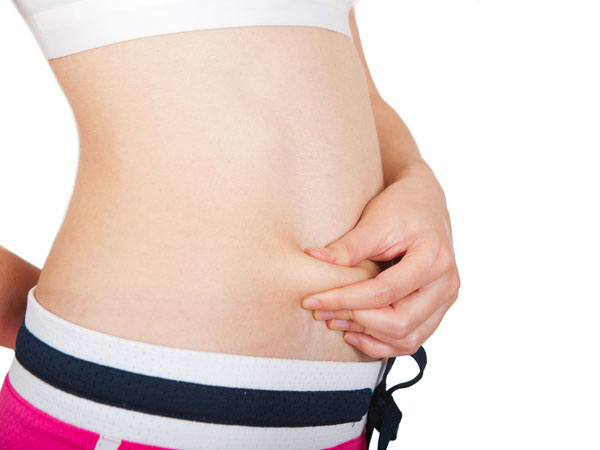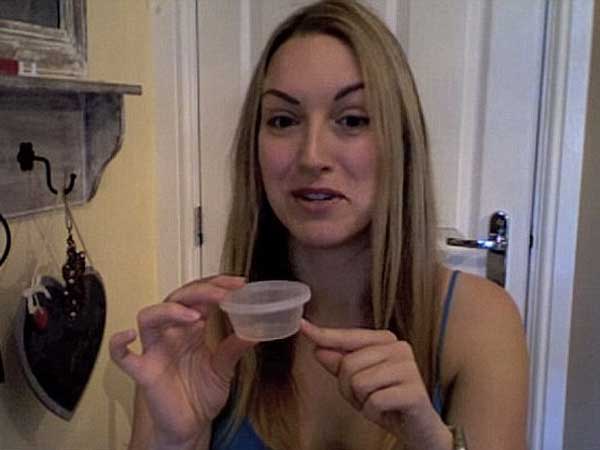The ketogenic diet may be on the rise as far as diet trends go, but the concept isn't new. First identified as a beneficial treatment for epilepsy, the high-fat, very-low-carbohydrate approach has been around for close to 100 years. Recently, the diet has become popular among athletes (LeBron James tried it) and those looking for the next weight-loss cure-all. Followers eat foods like butter, oils, fatty meats and cheese. Proponents claim it can lower cholesterol and improve athletic performance, but before you go "keto," here's a look at the science behind the popular diet.
Ketogenic Diet Basics
The keto diet requires the body to rely mostly on fat for energy, rather than the usual carbohydrates (see Carbohydrates vs. Fat for Fuel below). When carb intake is very low, ketones—products of fat breakdown in the liver—must fuel the body. According to John Hawley, Ph.D., director of the Centre for Exercise and Nutrition at Mary MacKillop Institute for Health Research in Melbourne, Australia, there is no global definition of the ketogenic diet. In other words, no standard exists for how many grams of carbohydrate, fat, or protein should be consumed when following the diet.
Most research around the diet has identified a carbohydrate intake between 25 and 50 grams per day, which is equivalent to two medium apples or one cup of cooked brown rice. This extreme reduction in carbohydrate is very difficult to maintain long-term and makes it impossible to meet the recommended amount of fruit, vegetable and whole-grain servings recommended for a healthy diet. According to the Dietary Guidelines for Americans, carbohydrates should make up 45 to 60 percent of daily calories, or 130 grams/day, for most people to eat a balanced diet and get necessary nutrients.
For epilepsy patients, ketogenic diets are administered in a clinical setting and require a team of dietitians and doctors to ensure that patients receive the correct daily levels of nutrients—and they're still extremely hard to follow.
Don't Miss: 30 Healthy Low-Carb Foods to Eat
Ketogenic Diet & Weight Loss
Beyond the low intake of carbohydrates, another key element of the diet is the extremely high intake of dietary fat. By consuming the majority of calories from fat, and severely limiting carbohydrate, the body remains in a state of ketosis (relying mostly on ketones for energy).
Short-term weight loss will occur naturally, mostly because of water weight you lose. Your body will deplete its glycogen stores (regular energy reserves from carbohydrate breakdown) and the water that is stored with them. While many people lose weight quickly, it's water weight, not true weight loss. In most cases, the weight will return when the dietary pattern again includes a larger percentage of carbohydrates. For that reason, the ketogenic diet probably won't help with long-term weight loss.
Athletes and a High-Fat Diet
The ketogenic diet is often promoted among athletes as a way to increase fat metabolism, and it does. "If you eat a high-fat, low-carbohydrate diet then your muscles will oxidize more fat during exercise," says Hawley. But, he points out, that argument misses an important point: "Carbohydrates set the limit to how fast or far you can go as an athlete, not fat." In other words, your body's ability to use fat as an energy source is not important when it comes to athletic performance lasting up to three hours. Some studies have even shown a detrimental effect on performance in those following a ketogenic diet, likely due to the increased oxygen needed when your body has to rely on fat for energy.
Some argue that since athletes can eat whatever they want, the high-fat intake won't have negative consequences, but, according to Hawley, that just isn't the case. "You're an athlete for one or at most two hours a day, not for the remaining 22 hours per day," he explains. Research has shown that diets high in dietary fat, especially saturated fat, can have negative, long-term health implications such as increasing the risk for cardiovascular disease, insulin resistance and type 2 diabetes. It's important to include some fats in the diet, though (the Dietary Guidelines recommend 20 to 35 percent of daily calories from fats, particularly poly- and monounsaturated), to aid in the absorption of fat-soluble vitamins and other crucial body processes.
Carbohydrates vs. Fat for Fuel
If you want to talk about the best way to eat to fuel your body, we need to go back to biology class. Carbohydrates are our body's primary energy source. When we eat carbs, they are digested into individual molecules called glucose, which our cells use as energy. Glucose that isn't used for energy is then stored in the form of glycogen in the muscles and liver—and any excess is stored as fat. Meaning if you eat a bowl of spaghetti, you'll use a certain amount as energy (even when you're resting, your body needs energy to breathe, pump blood, etc.), you'll store some as glycogen and then if there's any left over it will be stored as fat.
Basal metabolism (the energy needed to sustain your body at rest) requires a mixture of carbohydrates and fats for use as energy. During periods of prolonged aerobic activity, like running or swimming, the body shifts its fuel source and pulls mostly from glycogen stores to sustain activity. However, the amount of glycogen you can store in your muscles is limited and once depleted, carbohydrates must be consumed to replace what has been used. It's why marathon runners take in food and calories over the course of the marathon.
When your body doesn't have access to carbohydrates, it will turn to alternate sources—fat or protein. Fat stores provide significantly more calories, or energy, than glycogen stores and at lower intensities of activity the body mostly relies on its fat for energy (think walking on the treadmill rather than running). However, the process of turning fat into energy requires additional metabolic steps which, in turn, use more oxygen. When fat is broken down, ketones are formed and used as an alternate fuel source. In a continued absence of carbohydrate, ketones become abundant in the bloodstream and the body enters a state of ketosis. The same process is seen during fasting or starvation, but neither is very pleasant nor sustainable long-term. If you have diabetes, you should talk to your healthcare provider about ketoacidosis, a serious condition when blood ketones get too high.
Environmental Impact
Personal, physical health is the focus of most popular diets and many don't draw connections between the diet and potential environmental impacts. Sustainability is important to consider, though. Nicole Tichenor, Ph.D., a postdoctoral research fellow at the University of New Hampshire's Sustainability Institute, researches the environmental impact of diets. She explains that healthy diets that are lower in animal-based foods and higher in plant-based foods have lower environmental impacts, including carbon footprint, land use and water use. The ketogenic diet, by principle, doesn't follow this pattern. Tichenor's take: "the Dietary Guidelines Advisory Committee's working definition of a sustainable diet is one that promotes health and well-being, provides food security for the current population, and sustains human and natural resources for future generations. It would be very difficult, if not impossible, to eat a sustainable diet without beans/legumes, whole grains or root vegetables."
Bottom Line
The ketogenic diet is extremely difficult to follow and very restrictive. You need to severely limit healthy whole grains, fruits and vegetables, which means you would miss out on a lot of important nutrients. While the ketogenic diet has its place in clinical settings, the diet doesn't translate to the general population and, in fact, may have long-term negative impact on people choosing to follow such an extreme way of eating.


















